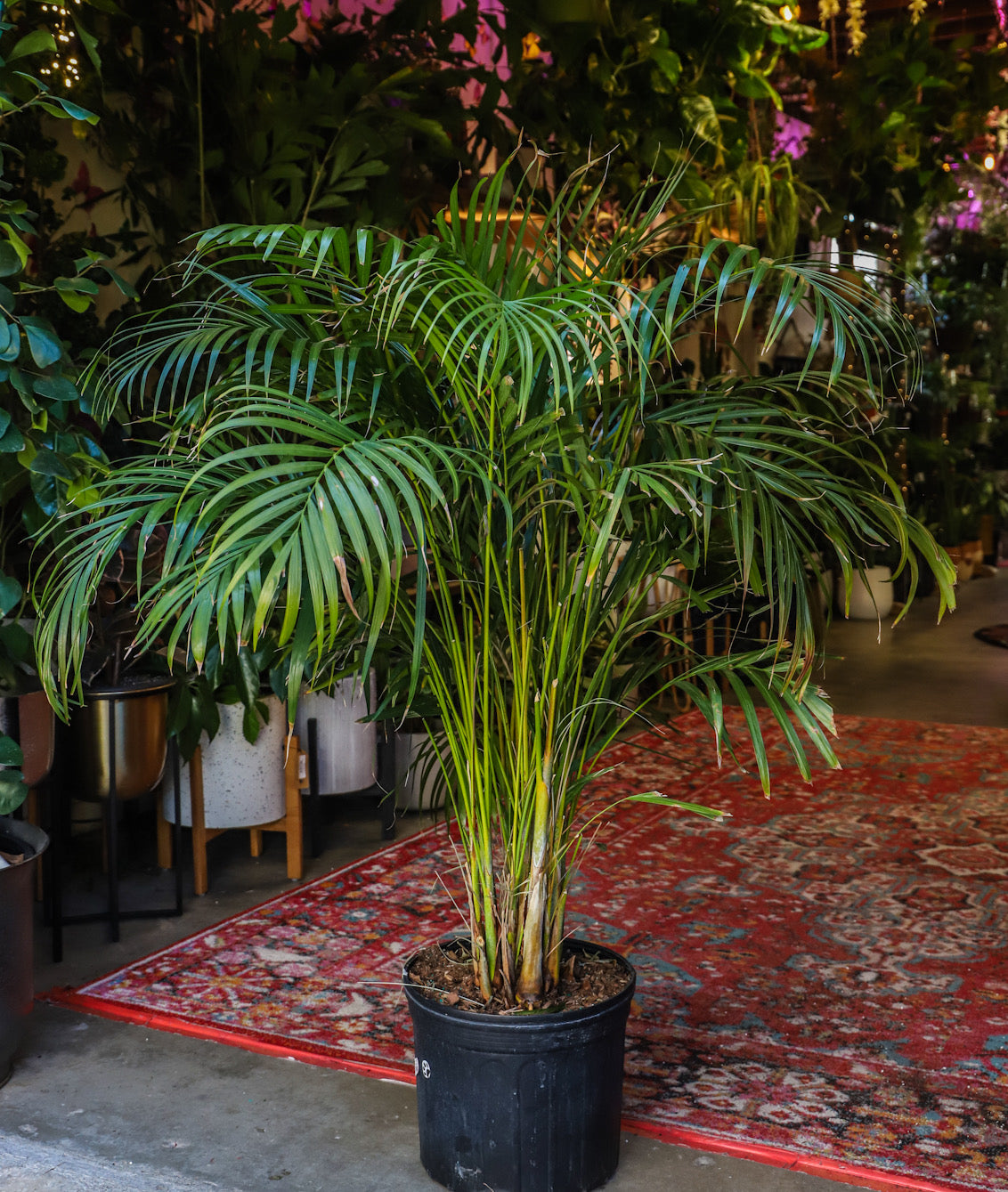

14” Areca Palm
The Areca Palm, scientifically known as Dypsis lutescens or Chrysalidocarpus lutescens, is a popular indoor palm known for its graceful, feathery fronds and tropical appearance. Here are care instructions for the Areca Palm:
1. Light: Areca Palms prefer bright, indirect light. They can tolerate some morning sun but should be protected from direct afternoon sunlight, which can scorch the leaves. Insufficient light may cause the leaves to turn yellow.
2. Watering: Keep the soil consistently moist during the growing season (spring and summer), allowing the top inch (2.5 cm) of soil to dry out slightly between waterings. Reduce watering in the winter, allowing the top half of the soil to dry out before watering again. Avoid overwatering, as this can lead to root rot.
3. Humidity: Areca Palms thrive in humid environments. To increase humidity, mist the leaves occasionally or place the pot on a humidity tray filled with water and pebbles. Avoid placing the plant near drafts or heaters, as they can dry out the air.
4. Temperature: Areca Palms prefer temperatures between 65-75°F (18-24°C) during the day and above 55°F (13°C) at night. They are sensitive to cold drafts and temperatures below 55°F (13°C), which can cause leaf damage.
5. Soil: Plant Areca Palms in a well-draining potting mix. A mix formulated for palms or tropical plants works well. Ensure the pot has drainage holes to prevent waterlogging.
6. Fertilizer: Feed Areca Palms with a balanced liquid fertilizer diluted to half strength every 4-6 weeks during the growing season (spring and summer). Reduce feeding in fall and winter when growth slows down.
7. Pruning: Trim brown or yellowing fronds at the base using clean, sharp pruning shears. Remove any dried or dead leaves to maintain the plant's appearance and health.
8. Propagation: Areca Palms are typically propagated by division. Separate the offsets (pups) that grow at the base of the plant during repotting and plant them in separate containers.
9. Pests: Watch for spider mites, scale insects, and mealybugs, especially in dry indoor environments. Treat infestations promptly with insecticidal soap or neem oil.
10. Potting: Repot Areca Palms every 2-3 years or when the roots outgrow the pot. Choose a slightly larger container with good drainage and fresh potting mix.
Areca Palms can be a bit finicky with watering—finding the right balance of moisture is key to their health. With proper care, these palms can thrive indoors, adding a lush, tropical feel to your home or office space.
** Images are used for general reference. Only the size in shape of each each plant will vary. **
LOCAL PICKUP OR DELIVERY ONLY
14” Areca Palm
- Related products
- Recently viewed

